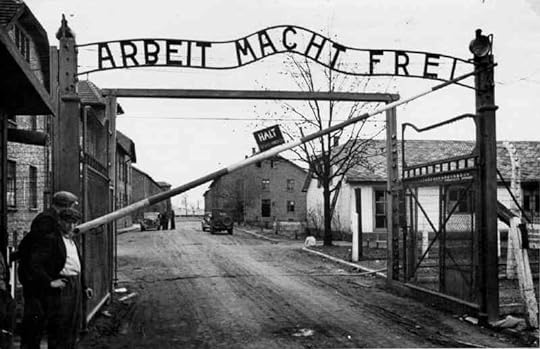What do you think?
Rate this book


1 pages, Audiobook
First published January 1, 1946

Schillinger was lying face down, clawing the dirt in pain with his fingers. We lifted him off the ground and carried him – not too gently – to a car. On the way he kept groaning through clenched teeth: “Oh Gott, mein Gott, was hab’ ich getan dass ich so leiden muss?”
the best description of bread
is a description of hunger
Tadeusz Rozewicz

“Why is it that nobody cries out, nobody spits in their faces, nobody jumps at their throats? We doff our caps to the S.S. men returning from the little wood; if our name is called we obediently go with them to die, and—we do nothing. We starve, we are drenched by rain, we are torn from our families. What is this mystery? This strange power of one man over another? This insane passivity that cannot be overcome? Our only strength is our great number—the gas chambers cannot accommodate all of us.”
“Real hunger is when one man regards another man as something to eat.”
neither poems nor prose
just a length of rope
just the wet earth —
that’s the way home.
neither vodka nor bread
just bursts of rage
just more new graves —
that’s youth and that’s love.
"We said that there is no crime that a man will not commit in order to save himself. And, having saved himself, he will commit crimes for increasingly trivial reasons; he will commit them first out of duty, then from habit, and finally--for pleasure.
'The world is ruled by neither justice nor morality; crime is not punished nor virtue rewarded, one is forgotten as quickly as the other. The world is ruled by power and power is obtained with money. To work is senseless, because money cannot be obtained through work but through exploitation of others. And if we cannot exploit as much as we wish, at least let us work as little as we can. Moral duty? We believe neither in the morality of man, nor in the morality of the systems."